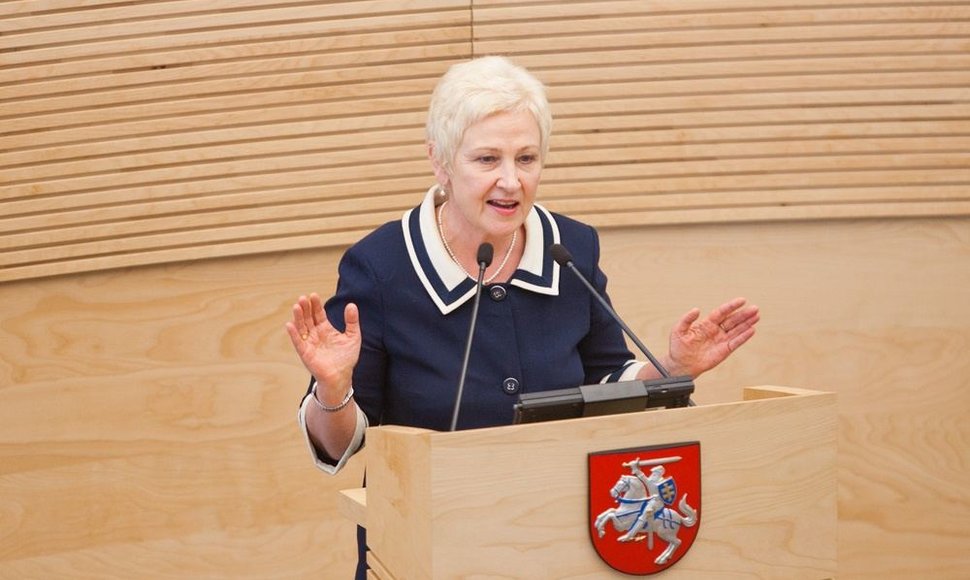In her words, the current defense funding is insufficient, and Lithuania should follow the Estonian example and raise the financing of its defense sector.
"NATO is Lithuania's security guarantee, and Lithuania's fully-fledged membership in the Alliance involves commitments not only on the NATO side, but also – I'd like to stress – on the Lithuanian side. Clearly, if the aspiration to achieve NATO's bigger political visibility in Lithuania and fully-fledged membership in the Alliance is sincere, the (current defense funding) is hardly consistent with the resources Lithuania has been earmarking to national defense. (...) Slashing defense spending would indeed breach the agreement of all key parliamentary parties, all parliamentary parties understand this (…)," Degutienė said in an interview to Žinių Radijas news radio on Wednesday.
Asked to comment on media reports about plans to reduce defense funding from 0.8 to 0.75 percent of the gross domestic product (GDP) in next year's budget draft, Degutienė assured she had not had any reports about 2013 financing plans, as the budget draft was not yet discussed at the government.
"We're starting discussions on these matters too early, there is no budget draft, it has not yet been discussed at the government, leave alone the parliament," she said.
The parliamentary speaker noted that she heard a call from her Estonian counterpart, Ene Ergma, during a meeting in August to raise defense funding.
"Estonians have again urged Lithuania and Latvia to provide adequate defense funding. Estonians did this a year ago. Therefore, I think that the parliamentary National Security and Defense Committee and the parliamentary Foreign Affairs Committee, which have repeatedly called upon the government for increased defense financing, will definitely do it this time, as well," Degutienė said.
Lithuania's current defense spending is under 1 percent of GDP, although NATO member countries have assumed the commitment of seeking to allocate at least 2 percent. Lithuania has come under NATO criticism over insufficient defense spending.
In 2004, 11 Lithuanian political parties committed themselves to granting at least 2 percent of the GDP for defense purposes in the 2005-2008 period as continuation of the analogous document signed in 2001. Nevertheless, the objective was never reached.
Emanuelis Zingeris, chairman of the parliament's Foreign Affairs Committee, said in May that higher defense funding would be envisaged in the 2013 budget discussions.
Prime Minister Andrius Kubilius thanked parties for the agreement, while presidential adviser for national security maters Jonas Markevičius said in comment of the document that the most important thing is that the agreement be feasible.












